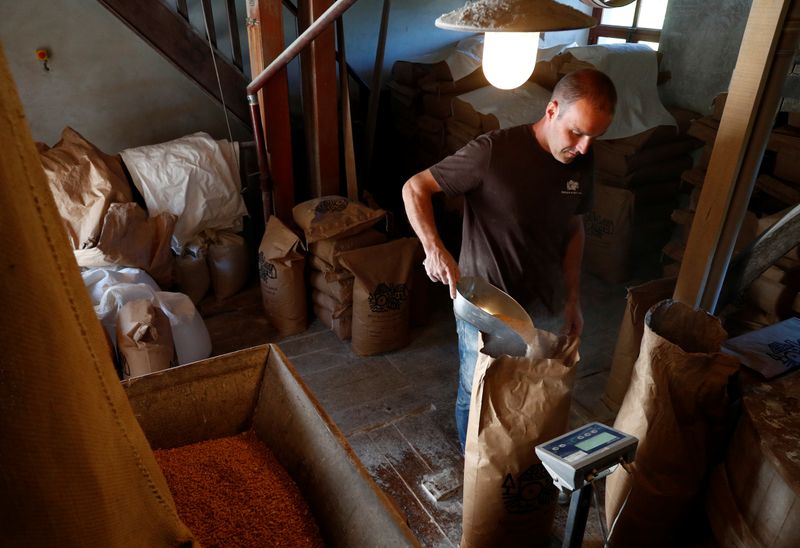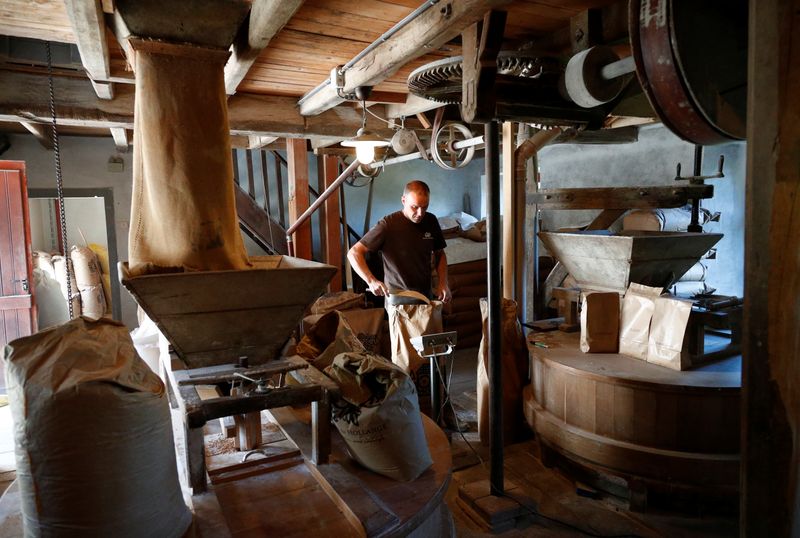By Francois Lenoir
HOLLANGE, Belgium (Reuters) - As Europeans have sought stress relief from baking while under lockdown, one of Belgium's last watermills still producing flour has seen a surge in demand for its produce.
French-born Belgian miller Adrienne Delacroix, whose mill in the Ardennes region of Belgium near Luxembourg has been producing flour for six centuries, said she had to rely on a network of small shops and online sales to supply eager consumers stuck at home and rediscovering baking.
"We've witnessed an explosion in demand from individuals wanting flour," Delacroix told Reuters from her mill, whose two large water wheels are powered by a tributary of the river Strange, and grind the wheat grain.
With friends and family baking - and sharing their creations via social media - during the coronavirus pandemic, Belgians have been mixing, kneading and proving to overcome boredom.
Delacroix, whose family bought the mill in 1991, believes it could become a habit, even as Belgium has been slowly opening up since May 4. Delacroix, who helped modernise the mill, gave up being a magistrate in 2009 to follow her passion for baking.
"I think it's been long enough (to have an impact)," she said of the lockdown. "I think the crisis has also brought home the importance of eating local produce," she said.
Once one of 430 mills noted in a 1900 census in the region, the Hollange mill's increased activity since March has not been without challenges. German bakers seeking scarce spelt grain on the Belgian market have sharply driven up prices.
The month of April was one of the driest and warmest on record, according to Belgium's Royal Institute of Meteorology, meaning a reduced harvest for wheat farmers and lower river water levels that could affect grinding at the mill.

"It is going to hit the harvest and, because we use hydropower, we may need to turn to electricity," Delacroix said.
